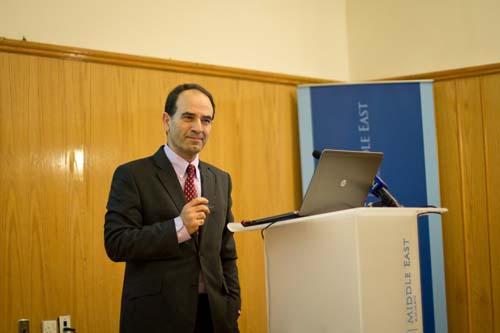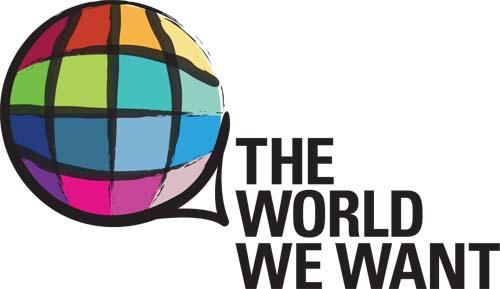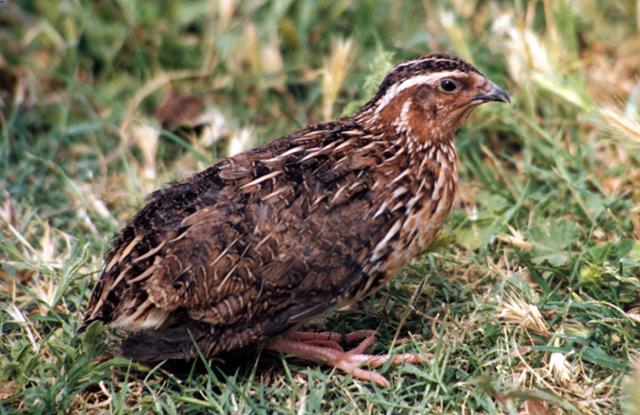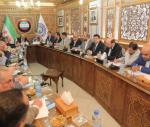AMMAN — More than three years into the Syrian crisis, refugees continue to trickle into Jordan on a daily basis, with an average of 300 border crossings every day, according to Davide Terzi, International Organisation for Migration (IOM) chief of mission to Jordan.
Terzi added that around 100 Syrians are returning spontaneously to their homeland from Jordan every day.
“Jordan is doing a good job. Border guards at the frontlines contribute to collecting and shuttling these people,” he said in an interview with The Jordan Times on Wednesday, adding that emergency cases are admitted from the western front while the eastern front is where the refugees are coming.
“Certainly there is a big problem next door, in Syria, and if we were to put ourselves in their place, from humanitarian grounds, we have to assist, and Jordan, a country that has hosted waves of refugees, is doing an overall good job,” Terzi reiterated.
The IOM official said the European Commission has made a substantial amount of money available to support the border guards, and under a recent agreement signed with the commission, the migration agency will provide 47 heavy-duty means of transport to the border guards to help them “more easily evacuate these people” as soon as they arrive.
Since the beginning of the crisis, over 5,000 wounded persons have been assisted by border guards and international humanitarian partners. They were transferred to Jordanian medical facilities, Terzi noted.
A week ago, a delegation comprising diplomats from 24 Amman-based embassies visited the government’s reception and support operation area near the northeastern border.
At an area called Hadalat, at the northeastern corner of Jordan, bordering Syria and Iraq, they witnessed more than 300 refugees crossing into Jordan, according to an IOM statement.
Terzi said the main objective of such expeditions to border region is for the international community to see at first-hand the efforts carried out by the government and its international relief partners in support of the Syrian people.
“The reports we all read unfortunately do not provide a clear picture of what it really means or takes to assist refugees in a deserted and harsh location such as Jordan’s northeastern sector,” the IOM director said, “nor do they give a tangible understanding of the difficulties and extreme physical and logistics energies employed round-the-clock by the Jordanian Border Guards and their international relief partners to rescue the displaced population that seeks refuge in Jordan.”
Since 2011, through a civilian-military agreement, the IOM has been supporting the border guards in their task of receiving and ferrying people from the northern border to the transit centre in Ribaa Al Sarhan.
From there, they are transported by the IOM to the Zaatari Refugee Camp and the Emirati-Jordanian camp in Mreijeb Al Fhoud, which currently houses around 4,000 refugees.
On the road to Rweished, the diplomats’ convoy, accompanied by General Hussein Al Zyoud, commander of the Jordanian Border Guards, passed by Al Azraq camp.
An empty space for now, the camp was launched to respond to the flood of refugees in early 2013, when the average number of Syrian nationals crossing into Jordan was exceeding 4,000 per day.
At present, with the few hundred refugees trickling daily into the Kingdom, Azraq remains a contingency plan.
According to UNHCR figures, the Zaatari camp in Mafraq Governorate, over 80km northeast of Amman, is currently home to 92,000 people.
“This number has been identified in the most recent food distribution, but we, along with the government of Jordan are working to verify the figure as refugees will be issued new IDs soon, and this will give us more specific figures,” said Kilian Kleinschmidt, UNHCR Zaatari camp manager.
The number of registered refugees who entered Jordan since the beginning of the crisis has reached 600,000, of whom 80 per cent reside among host communities across the Kingdom, according to the IOM.
Many Syrians have spontaneously returned to their country, but it is difficult to verify the exact number, according to several representatives of humanitarian missions, who put the total number of these cases at 104,000 over three years.
In reply to a question on the Geneva conference, where the Syrian regime and the opposition are holding talks over a possible political solution, Terzi said: “We have not seen any breakthrough. The only concession was of the Syrian government in allowing the evacuation of Homs. UN envoy Lakhdar Brahimi and other UN officials are trying their best. Let’s hope we will achieve this political solution.”
“At least have a ceasefire. This is what is hoped,” he added, noting that the IOM was part of the task force that helped in the Homs evacuation.

















